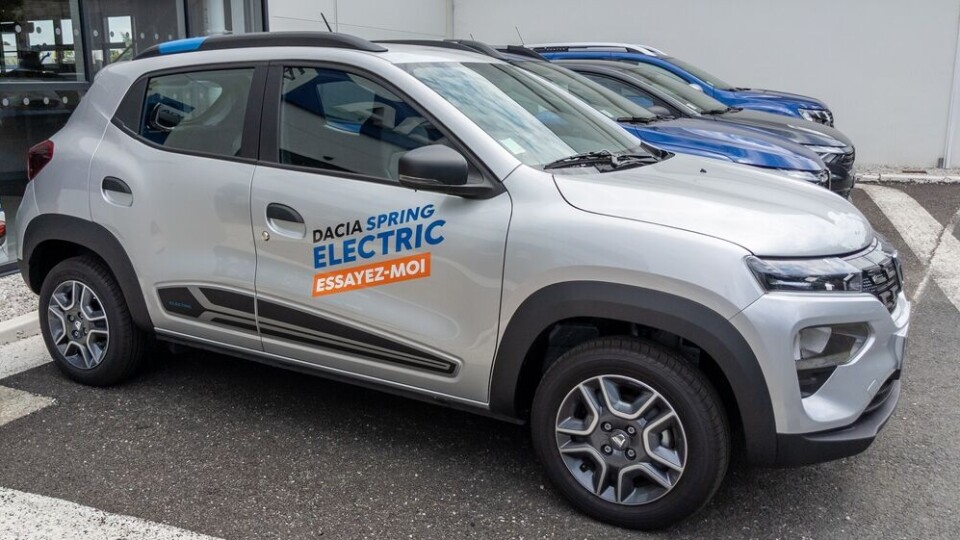-
‘No-licence’ cars: six rules to know in France
Double the number of these cars were registered in 2024 compared to 2019
-
France’s first 100% electric service station set to open in 2026
Station in Brittany will include six ultra-fast charging points
-
Tests underway on French motorway into recharging electric vehicle as you drive
‘World-first’ scheme sees quicker charging times than traditional methods
New carbon scores will keep foreign electric cars out of France
A higher score would mean more subsidy available for the buyer but Renault-owned Dacia could be adversely affected

Tighter rules designed to keep out Asian and US-built electric vehicles and encourage EU car makers are likely to be introduced from January.
Details of the rules, which will be introduced by ministerial decrees, were unveiled at the end of July for a one-month consultation period.
If they are implemented, one of France’s cheapest new electric cars, the Dacia Spring, manufactured by Romanian company Dacia, part of the Renault group, will be affected.
Read more: Do not minimise electric car CO2 emissions, says French association
Low earners can get up to €7,000 subsidy
Car makers are likely to pay close attention to the rules because France’s subsidies for electric vehicles are generous for people earning less than €14,089.
They can receive up to €7,000 off the price of an electric vehicle if they scrap a diesel or petrol-powered one.
In the case of some small cars, the subsidy can bring down the price to that of a similar petrol or diesel car.
Read more: French state aid for switching to a less polluting car
Higher carbon score means more subsidy
The main change is to make the receipt of government subsidies for the purchase, or long-term hire, of electric vehicles dependent on an environmental score attributed to each vehicle.
A six-point system scoring vehicles from 0-100 has been developed by the Agence de la transition écologique (Ademe). Only cars with 60 points or more will be eligible for subsidies.
The methodology looks at the carbon footprint of the main elements of the car, including steel, aluminium and the battery, as well as other materials used to manufacture the vehicle.
Added to the calculation will be a carbon footprint assigned to the factories making parts and assembling the vehicle, and to the transport used to move the car from the factory to the showroom.
It is the carbon score assigned to transport that could make it difficult for Asian or US-manufactured vehicles to meet the minimum 60 points required to be eligible for subsidies.
Tesla and Dacia EVs made in China
Teslas, cars built by Elon Musk’s company, are likely to be affected before the car factory and battery plants he is building in Germany reach full production.
Until then, Tesla Model Ys sold in Europe, priced below the €47,000 eligibility ceiling for subsidies, will probably still be made in China or the US.
Meanwhile, Dacia’s Spring, one of France’s lowest-priced EVs at €20,800 for its Essential electric 45 and €22,300 for an Extreme electric 65, is made in China.
The figures are before subsidies, so drivers could buy Springs for €13,800.
However, the new rules would treat city cars with fewer than five seats and a top range of 180km differently from other vehicles, and it is not yet clear how the Spring (305km autonomy for city driving, according to Dacia) would be treated.
Dacia did not respond to requests for an interview about the new rules.
Related articles
Nearly 1,800 to file complaint to French carmaker Renault over defects
French firm invents kit to convert petrol cars into plug-in hybrids
‘We tried out driving from Yorkshire to Dordogne in an electric car’
























